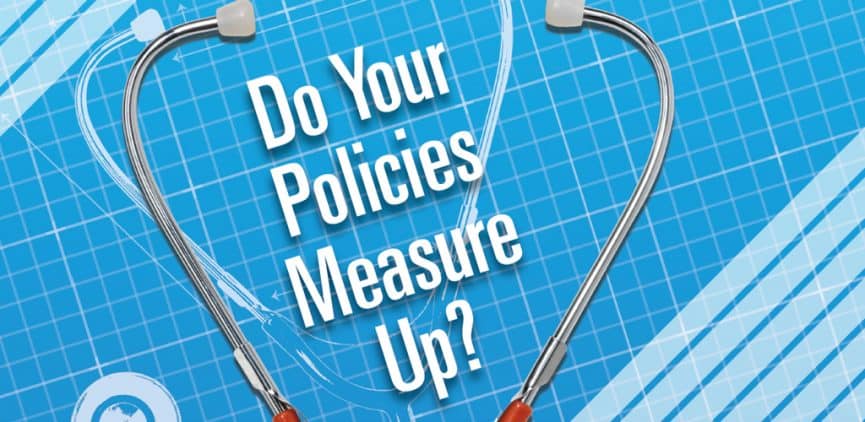It doesn’t matter if you were fired or laid off, whether you saw it coming or were completely blindsided: Losing your job is disorienting. You’ll feel like you’re in a fog. And yet, in that fog you still need to answer some important questions:
How will you pay rent? Put gas in your car? What about your student loans?
The average length of unemployment is almost 22 weeks, according to the Bureau of Labor Statistics, so it’s important to quickly adapt your finances to your temporary new normal.
Working through these tasks in the first seven days can help you find your financial footing as you figure out the next step in your career.
Day 1: Apply for unemployment
“Filing for unemployment insurance is a critical piece to getting back on your feet,” says Kyle Goulard, a certified financial planner in Portland, Oregon.
Contact your state’s unemployment office the day you lose your job. In most cases, you can file your unemployment claim online. The process can take a few weeks, so don’t delay.
Day 2: Assess your savings
Take stock of what you’ve squirreled away over the years. How far will it get you? Factor in any severance or payouts for unused vacation days, which will help you stretch your reserves.
In an ideal world, you’ll have enough savings to get you through a few months. In reality, you may only have a few weeks’ worth. Prioritizing bills and cutting back spending can help stretch that (more on that below).
Your 401(k) might look like a lifeline, but resist the urge to cash it out. Between taxes, penalties and lost retirement earnings, that’s an incredibly expensive move. Consider it a last resort, and you’re not there yet.
Day 3: Strip down your spending
“As soon as you lose your job, you should switch to an emergency bare-bones budget,” says Bruce McClary with the National Foundation for Credit Counseling.
That means cutting nonessentials, including gym memberships, ride shares, cable, streaming services and other subscriptions.
These changes feel extreme, but they’re only temporary. You can readjust your spending once you find another job.
Day 4: Call your creditors
Contact any lenders, utility companies and credit card issuers that you owe money. Many will have options to help out, including reducing or suspending payments, McClary says. The key here is to be proactive.
“It’s definitely taken into consideration when a borrower reaches out first,” McClary adds. “It can change the entire conversation.”
Day 5: Don’t neglect your student loans
Most student loans have built-in protections to help with this exact situation.
You may be able to temporarily suspend your loan payments through deferment or forbearance, or change your repayment plan to lower the amount due each month. Call your loan servicer to figure out the best option based on your loans.
If you’ve already missed a payment, you may have some wiggle room. Federal student loans aren’t considered in “default” until they’re 270 days past due. Avoid getting to that point, says Dana Kelly with the National Association of Student Financial Aid Administrators.
“Little dings are gonna happen, but you don’t want anything major. Especially when truly there is no need for it to happen,” Kelly says. “You can simply make a phone call and get yourself on better footing while you’re finding that next job.”
Day 6: Prioritize financial obligations
You may need to make some hard decisions if you don’t have enough money to go around. But how do you decide what gets paid and what doesn’t?
“Your top priority should be on making rent, keeping the lights on, putting food on the table,” says Scott Newhouse, a certified financial planner in Thousand Oaks, California.
Debt comes next. McClary says to prioritize collateralized loans, like your mortgage or auto loan. Defaulting on those could lead to losing your home or car.
With credit cards, continue to make at least the minimum payment for as long as possible. Missing payments will damage your credit score, which can take years to rebound. And you may need your credit cards to cover expenses down the road.
Remember: Continue talking with your creditors, especially if you need to miss a payment. You’ll have more control over the situation if you keep them in the loop.
Day 7: Sort out your health care
Health insurance through your employer typically won’t terminate the day your employment does. Often, you’ll have coverage at least until the end of the month, but you’ll need something to bridge the gap until your next gig.
Job loss is considered a “qualifying event,” meaning you can get health insurance outside of the annual open enrollment period. Explore the following options:
Your parents’ plan, if you’re under age 26.
Your spouse’s employer-sponsored plan.
The health insurance marketplace (Healthcare.gov).
Continuing coverage through your former employer via COBRA insurance.
One option that should not be on the table: forgoing insurance.
“This is a ‘must-have’ without question,” Goulard says. “The only thing worse than being unemployed is incurring health care costs without health insurance coverage.”
This article was written by NerdWallet and was originally published by The Associated Press.y
More From NerdWallet
How I Ditched Debt: From ‘Extravagantly Broke’ to Comfortably Frugal
How to Stop Anxiety From Ruling Your Finances
Don’t Let Try-Before-You-Buy Shopping Bust Your Budget
Kelsey Sheehy is a writer at NerdWallet. Email: [email protected].
The article You Lost Your Job? Here’s How to Find Your Financial Footing originally appeared on NerdWallet.
The post You Lost Your Job? Here’s How to Find Your Financial Footing appeared first on NFCC.
Read more: nfcc.org









 In the world of consumer credit, there are a number of Federal laws or “statutes” which help consumers in regards to their personal credit. Two such notable statutes are the Fair Credit Reporting Act, more commonly referred to as the “FCRA”, and the Credit Card Accountability, Responsibility, and Disclosure Act of 2009, more commonly referred to as the “CARD Act.”
In the world of consumer credit, there are a number of Federal laws or “statutes” which help consumers in regards to their personal credit. Two such notable statutes are the Fair Credit Reporting Act, more commonly referred to as the “FCRA”, and the Credit Card Accountability, Responsibility, and Disclosure Act of 2009, more commonly referred to as the “CARD Act.”
